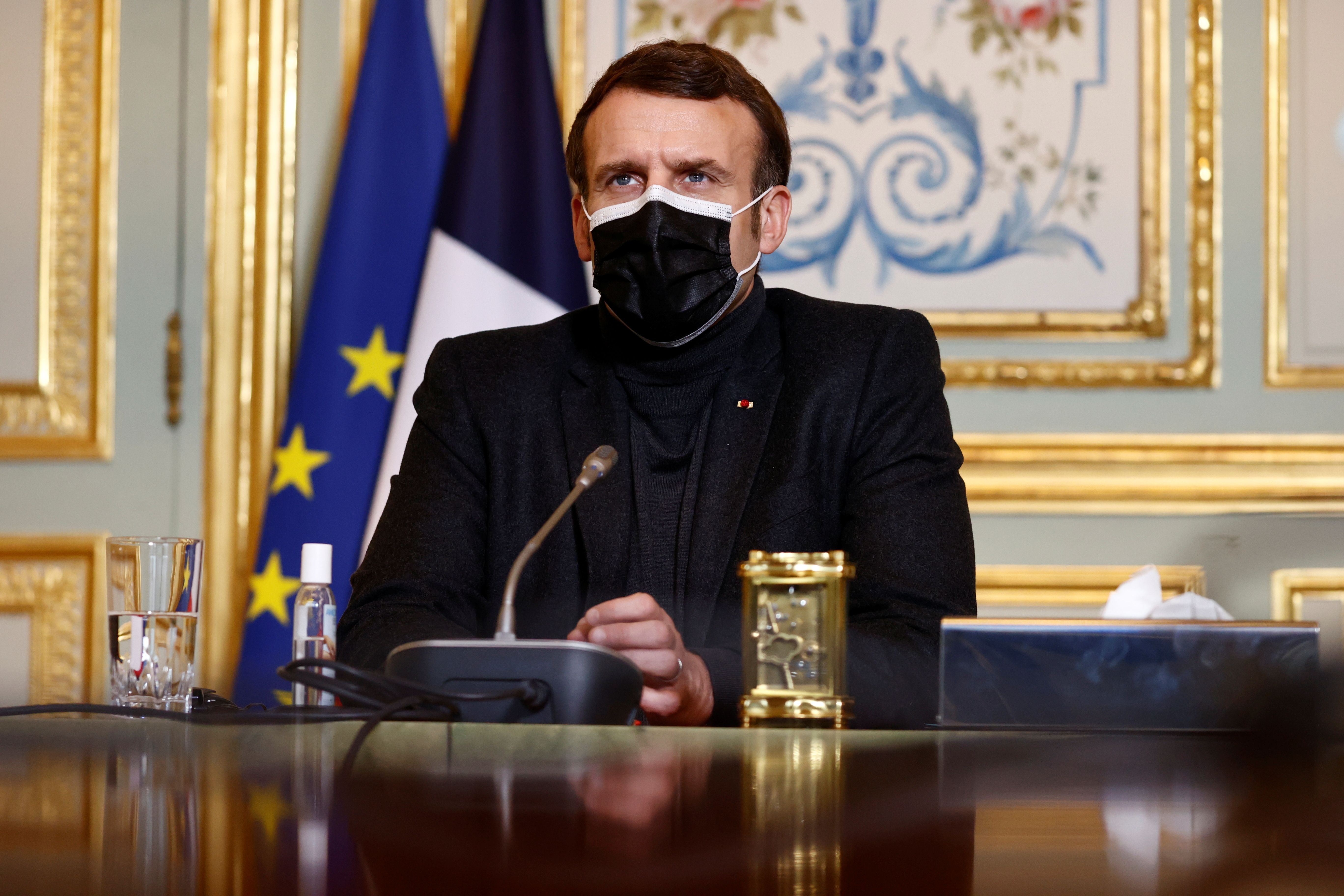Ecology and Growth: Macron’s Dilemma before Elections

A 2019 poll showed for the first time that environmental policy has priority over social security for French voters. This is due in part to the increasing impact of the negative effects of climate change on everyday life (intense forest fires, heat waves, droughts). The change in social priorities is also expressed by the rising popularity of the Greens (EELV), who won third place in the 2019 elections to the European Parliament (13.47%), while in the 2020 municipal elections the party won power in several large cities—Lyon, Bordeaux, Strasbourg and others. There was also social resonance with a recent judgment by the Paris administrative court, which ruled on 3 February 2021 that the French government was to blame for reducing greenhouse gas emissions too slowly between 2015 and 2018.
At the same time, a slim majority of the French (51%) are willing to accept a lower standard of living out of concern for the environment. An attempt to impose an ecological tax on fuels triggered the “yellow vests” protests in 2018. In response to ambiguity in the public’s perception of ecological issues, the authorities in 2019 established the Citizens’ Convention for Climate, a 150-person advisory body, to legitimise environmental policy.
Government Actions
The French government’s pressure on ecology policy stems not only from the public’s expectations but also Macron’s conviction that this decade is crucial for the development of non-emission technologies. Through this ecological transformation, the government aims to stimulate innovation. France’s hosting of the historic climate summit in 2015 also plays a significant role. According to the French authorities, ecology should not “scare ordinary people”, so the focus is on obligations for businesses and the energy sector.
From 1990 to 2015, France reduced CO2 emissions by 12% (specifically by 19% in the economy, including 30% in industry, and 12% in agriculture between 1990 and 2017). During the Paris Climate Summit, France pledged to reduce emissions in the country by 40% by 2030, and under the EU Green Deal, to achieve climate neutrality by 2050. The Energy-Climate Law of 2019 was a step in this direction, as it requires a 40% reduction in fossil fuel consumption by 2030 compared to 2012.
Although the High Climate Council, an independent expert board, stated that the decline in emissions in France is too slow to meet these commitments, the government is not idle. By 2022, the last four coal-fired power plants are to be closed. One outcome of the Energy-Climate Act is the role of ecology in the French pandemic recovery plan.
France aims to preserve nuclear energy but move away from gas and coal. Nuclear energy (about 70% of its energy mix) makes France’s carbon footprint low (299 million tonnes of CO2 emissions in 2019 compared to Germany’s 683 million tonnes, and Poland’s 304 million tonnes). However, the government also emphasises the need for diversification of energy sources and wants the share of nuclear energy to decrease to 50% by 2035. The shutdown of reactors is to be accompanied by the development of renewable energy sources, including offshore wind energy.
In line with the EU Hydrogen Strategy, France is also interested in using this element as an energy source, especially in transport. The focus is especially on so-called “violet hydrogen”, obtained from methane pyrolysis in nuclear power plants. France has also joined the European initiative to develop hydrogen transmission infrastructure.
Environmental and climate protection have become priorities in French foreign and development policy. Ecology is considered closely related to security (e.g., climate refugee management), hence France’s activity on biodiversity (e.g., the “Great Green Wall” project in Africa) or involvement in the preparation of the climate summit in Glasgow in 2021.
France is also exerting pressure on countries which, in its opinion, pursue inappropriate environmental policy (e.g., opposition to the EU-Mercosur trade agreement due to logging of the Amazon rainforest). The protection of the economy against unfair competition from more carbon-intensive partners is to be ensured by an EU-wide carbon border tax, postulated by France. French business also want to participate in the ecological transformation of developing countries.
Problems and Criticism
By setting up the Convention on Climate, the government is emphasising the importance of citizen participation in the development of French environmental strategy. It turns out, however, that the Convention has been taken over by a minority of members who are particularly committed to environmental issues, so the authorities fear an escalation of radical demands, such as abandonment of 5G (the new technology will prompt massive changeover of electronic devices). The government has prepared a legislative draft strengthening the provisions of the Energy-Climate Act but diluting the Convention’s demands. The former was criticized by Convention participants as not very ambitious. In response, Macron announced a referendum on strengthening constitutional guarantees of environmental and climate protection.
The ecological transformation in agriculture raises problems. The government has been criticised for lifting the ban on the use of insecticides based on nicotinoids, which are also harmful to bees. In some regions, such as Brittany, there is pressure to defend large-scale agriculture. Citing the environmental effects of the EU’s Common Agricultural Policy (CAP), there was a proposal to make subsidies dependent on the number of people employed on a farm rather than its area.
The ecological transition is also controversial for industry. The automotive sector is concerned that halting the production of fossil-fuel-based motor cars by 2040 could result in the bankruptcy of some manufacturers. The government supports the sale of low-emission cars (€1.5 billion in 2020–2022), but the only way to save some factories (especially in view of automation) seems to be consolidation. However, the effect of the sector’s evolution will be a reduction in employment by several thousand jobs.
The aviation industry also invests in ecology. In the fall of 2020, Airbus unveiled three hydrogen-powered passenger aircraft designs. Until 2022, the state will offer up to €1.5 billion in support for work on them. However, the crisis in the sector caused by the pandemic will force Airbus to lay off 5,000 jobs in France alone.
Conclusions and Prospects
Macron’s compromise ecological policy is criticised by the opposition and many social groups (environmentalists, trade unions, farmers). However, it may suit the average voter who expects environmental and climate progress without changing the standard of living too much. The French authorities believe that businesses are effective creators of social attitudes, so they should be the addressees of pro-ecological constraints.
Ecology will also play an increasingly important role in France’s European and foreign policy, as it is convenient justification for protectionist actions (opposition to the Mercosur agreement, French demands to loosen state aid rules).
Despite its reduced role, nuclear energy will remain at the centre of France’s energy strategy. The key to saving the profitability of the French nuclear industry will be refining European Pressure Reactor (EPR) technology and making up for the loss of image associated with its unsuccessful export. It is equally important for France to agree with the European Commission the conditions for the de-concentration of the EDF energy group so that the new entity will be able to finance the modernisation of the nuclear park (€51 billion over 10 years).
The reduction of the role of nuclear energy is intended to force the sector—which derives its advantage from economies of scale—to compete with renewable energy, especially offshore wind energy. France and Poland may work together on developing the latter. Poland also could join the European initiative to develop hydrogen transmission infrastructure.
Agriculture, in particular livestock farming, remains the weakest point of the French ecological strategy. The introduction of sustainable ecological farming will be met with resistance. Although the government will want to show a commitment to transformation of the sector, France probably will not support radical implementation of some ecological assumptions of the new CAP. Poland and France may be interested in consulting each other about how to work on implementing principles of ecological farming.


